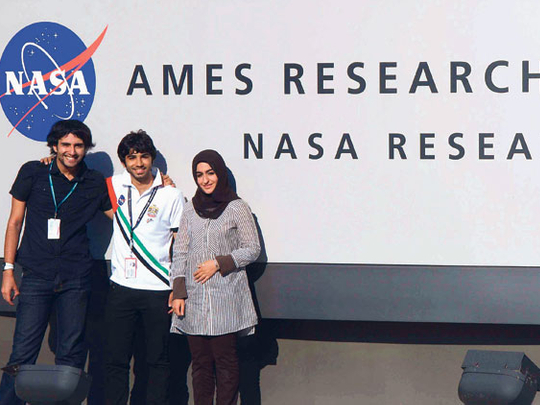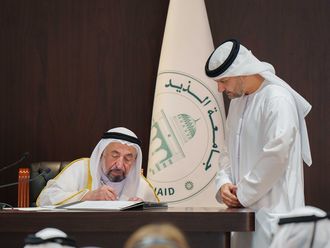
Being the first Emirati woman to accomplish a feat such as forecasting an earthquake using satellite data at the National Aeronautics and Space Administration (Nasa) Ames Research Centre would be enough to make any mother proud.
However, Shamma Al Qasim was not only the first Emirati woman to intern at Nasa, she was the only female among the first group of international students to spend their summer studying at the research centre. The computer engineering student at the American University of Sharjah was joined by her peers, Hamad Rajab from UAE University and Hazza Bani Malek from the Higher Colleges of Technology in Ras Al Khaimah. The trio was among the first group of 12 students who embarked on Nasa's educational training programme made possible through agreements between Nasa, the Arab Youth Venture Foundation and sponsorship by the Mubadala Development Company.
Honour
"It's an honour to be the first international female student to go there [Nasa] and experience this," said Shamma. "I wasn't just representing myself but the whole of the UAE," she added.
During her 10 weeks in the US this summer, Shamma analysed satellite images and sensors in search of precursors to earthquakes, in a research area which specialises in predicting them. "Everyone thinks Nasa is just about space exploration but when you go there you see it is much more than that," said Shamma.
Bani Malek, a mechatronics (robotics) student, spent his time upgrading and implementing new devices in robots controlled by electrical signals. "I became more confident about independent learning without a teacher. Since there was a lot to learn and had no one to teach me, I taught myself and discovered my limits and abilities," he said.
Rajab, an electrical engineering student, was part of a design team working on recycling systems which turn unclean water into drinking water.
Nasa's first acceptance of non-US student interns from the UAE was an opportunity to create an alliance between two nations, in pursuit of the advancement of humanity.
The programme has also taught the students about how to make such ambitions possible. "Since I've been back I realise the UAE has many opportunities for all kinds of students, but they need to work harder and grab them, because great chances don't come on a silver platter," said Bani Malek.












